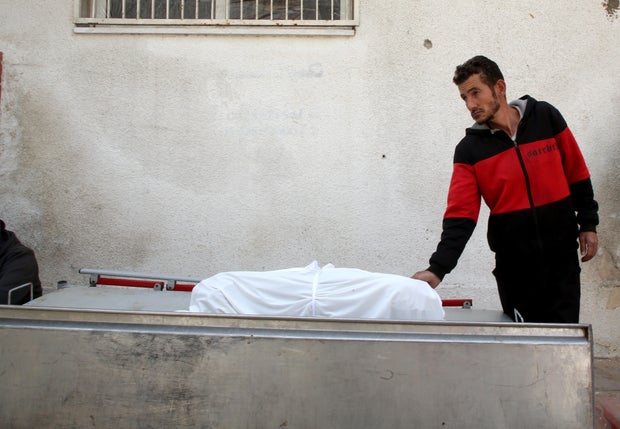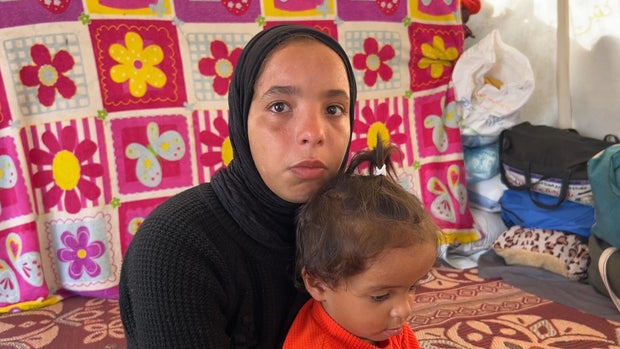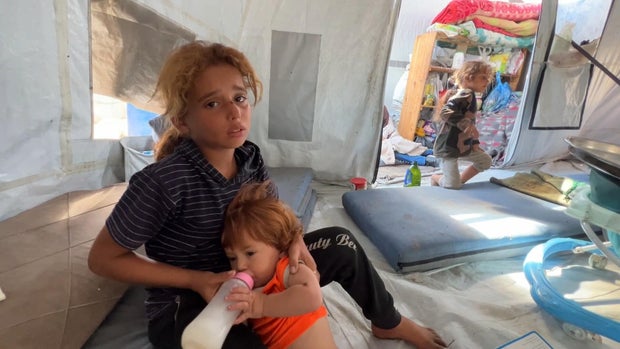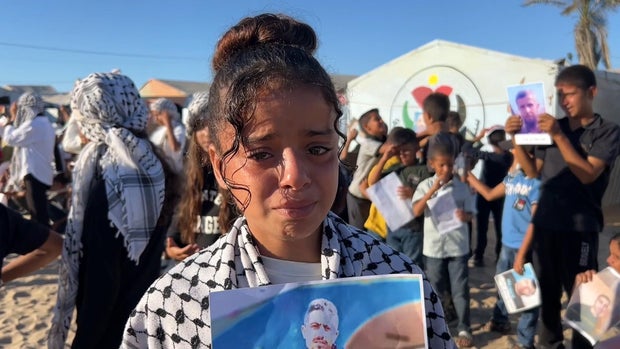Jerusalem — Indirect peace talks between Israel and Hamas aimed at ending the war in Gaza and freeing the remaining Israeli hostages resumed Wednesday in Egypt. President Trump’s envoy Steve Witkoff and son-in-law Jared Kushner were expected to arrive in Egypt on Wednesday to join the conversations, a source familiar with the matter told CBS News.
The war was sparked by the Hamas-led, Oct. 7, 2023, terrorist attack, in which around 1,200 people were killed and 251 others taken as hostages. Israeli officials believe 48 of those people remain captive, though only 20 are believed to still be alive.
Since that day, the Gaza Strip’s Hamas-run Ministry of Health says Israel’s retaliatory war has killed more than 67,000 Palestinians. Israel disputes that figure but provides no estimate of its own, and the United Nations considers the health ministry’s count the most reliable information available, as Israel has barred foreign journalists from operating independently in Gaza.
Ricardo Pires, a spokesman for the United Nations children’s charity UNICEF, said this week that what he calls Israel’s “disproportionate response” in Gaza has killed or maimed at least 61,000 children since the war started.
UNICEF and the global charity Save the Children, which cited data compiled by the Hamas-run Gaza Government Media Office, say that on average, a child dies every hour in Gaza — or “a classroom of children” per day, as UNICEF put it.
Hamza Z. H. Qraiqea/Anadolu/Getty
Since the war started, Save the Children says at least 20,000 kids have been killed in total – amounting to nearly a third of all Palestinians believed to have died in the war.
UNICEF spokesman James Elder, told CBS News that when he visited one of Gaza’s beleaguered hospitals this week, “the first thing I saw was four children who had all been shot by quadcopters [military drones], then I went into a hallway and it was wall-to-wall children across all the corridors.”
“There was a boy bleeding out on the floor who had apparently been there for five hours, then he was put on a stretcher only for another child to be put in his place,” Elder told CBS News. “Then I watched a little girl die. That’s half an hour here in Gaza.”
The staggering death toll does not reflect the thousands more children who have been maimed and injured, or those who have lost one or both parents during the war.
At a makeshift camp for Palestinian orphans in the southern city of Khan Younis, CBS News’ team in Gaza saw some of the young faces behind the grim statistics.
CBS News
“I wish the war were just a dream I’d wake up from and see my parents next to me,” said 14-year-old Deena Al-Za’arab, who lost both of her parents.
“I have to keep it together for the sake of my siblings,” she added, “because now I must raise them.”
Many of the children at the camp now spend their days doing the work of adults.
Arat Awqal, who is just 10, promised her father she’d be a doctor before he died, but she now focuses on taking care of her younger sister.
“I just want to go back to how it used to be,” she told CBS News. “Whenever we heard the sound of missiles my father would hold us, but now he’s gone, and we are always scared.”
CBS News
UNICEF says one in five children in Gaza is acutely malnourished, and Elder stressed that the trauma being inflicted on the youngest is not just physical.
“The kids not only lost loved ones — it’s not just about just having your mother killed, it’s about watching your mother die, then add that level of trauma to being displaced — and we talk of displacement, it sounds like a neutral or abstract term. It’s not. It’s violent. It’s repetitious, and it also increases trauma.”
The U.N. estimates that about 90% of Gaza’s population, some 1.9 million people, have been forcibly displaced during the war, many of them multiple times as the focus of Israel’s military operations has shifted. Most recently, the Israel Defense Forces ordered everyone to leave Gaza City, the enclave’s biggest population center, and to move further south, to areas such as Khan Younis.
It’s led to another mass exodus, which aid workers say has increased the suffering in the region and made it harder to help those showing up, often with nothing.
“There have been several hundred thousands of people who have moved from the north recently, in the last few weeks,” Olga Cherevko, a spokesperson for the United Nations Office for the Coordination of Humanitarian Affairs, told CBS News’ Haley Ott on Wednesday.
“The situation was already very crowded,” she said, speaking on the phone from central Gaza. “They are now even more so. You can see a lot of people living on the side of the road, pitching tents on the sides of the roads … There are many people who fled on foot and, of course, were not able to bring anything with them, and this creates extremely difficult conditions in terms of hygiene, sanitation and these kinds of things.”
CBS News
At the camp for the orphans — all of them among the displaced — 12-year-old Gazal Basam told CBS News she felt “such pain in my heart after losing my dad.”
“I want to live like I did before the war,” she said. “But I know life will never be the same again.”.
“I feel such pain in my heart after losing my dad,” said 12-year-old Gazal Basam at the camp for orphans. “I want to live like I did before the war, but I know life will never be the same again.”
and
Tucker Reals
contributed to this report.






